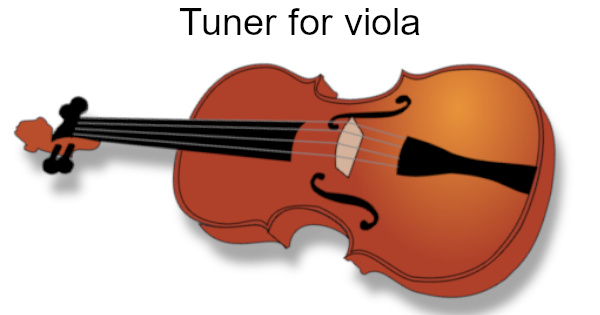This online tuner allows you to tune your viola.
Instructions:
- Click on start
- Click " allow dacapoalcoda.com to use your microphone (from your webcam, for example) "
- At any time, you can select the reference note A (440Hz, 441Hz, 442Hz, or other)
Advantages of an online tuner?
- Requires no installation of an application or software
- Works on all devices: computers, mobiles, tablets, etc...
- Reliability
Tuning Your Viola
To tune your viola with this online tuner, here's what you do:
- Using this tuner, click on start
- Click on "allow dacapoalcoda.com to use your microphone ".
- Choose the reference A (440Hz, or generally 442Hz)
- Use the bow to play the string you want to tune
- Check the accuracy of the tuning:

The cursor is in the middle: you are perfectly in tune!

The cursor is on the left: you are too low, you need to tighten the string by turning the pegs or using the fine tuners on the tailpiece.

The cursor is on the right: you are too high, you need to loosen the string by releasing the pegs or using the fine tuners on the tailpiece.
You'll need to tune the four strings, C, G, D, and A and:
Before rehearsals, all the string instruments in the orchestra tune to an A, as they all have an open string that produces an A. Therefore, start by tuning the viola's A string, even if you're playing alone:
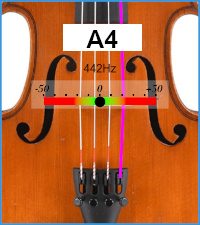
Tune the A string (A4), by tightening or loosening the pegs or using the fine tuners on the tailpiece. The A string should turn violet (on the tuner, not on the viola, otherwise, it's on fire )
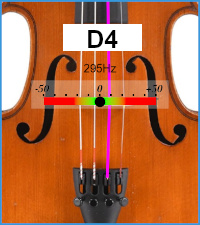
Tune the D string (D4), by tightening or loosening the pegs or using the fine tuners on the tailpiece. The D string should turn violet.
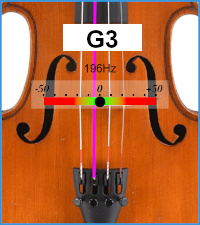
Tune the G string (G3), by tightening or loosening the pegs or using the fine tuners on the tailpiece. The G string should turn violet.
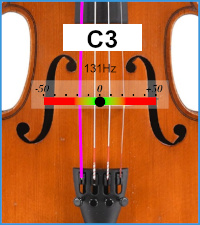
Tune the C string (C3), by tightening or loosening the pegs or using the fine tuners on the tailpiece. The C string should turn violet.
After tuning each string individually, briefly recheck the tuning of the viola's four strings.
Some Tips
- New strings quickly go out of tune; after changing a string, you need to tune it more frequently.
- If the strings don't hold their tuning, the pegs might be poorly adjusted.
- Avoid over-tensioning while tuning, as going a tone and a half sharper increases the risk of breaking the string.



